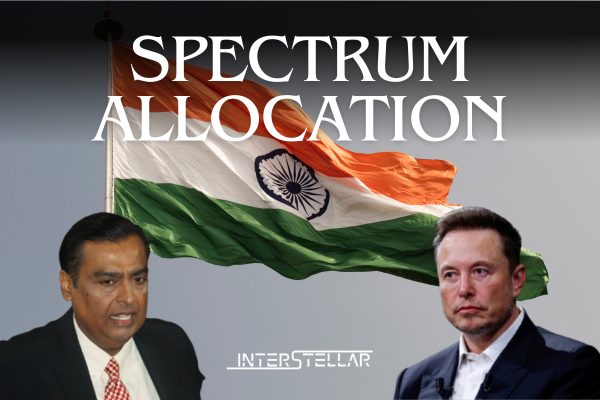India’s Government Opts for Administrative Spectrum Allocation for Satellite Broadband
India’s government announced it will allocate spectrum for satellite broadband through administrative means, not via auction. This decision came just hours after Elon Musk criticised the auction route, which was being pushed by Mukesh Ambani’s Reliance. The dispute revolves around the method for assigning satellite spectrum, a market expected to grow by 36% annually and reach $1.9 billion by 2030.
A Battle Over Spectrum Allocation
Elon Musk’s Starlink advocates for the administrative allotment of satellite spectrum, aligning with global trends. In contrast, Reliance, led by billionaire Mukesh Ambani, calls for an auction to ensure fairness. Reliance argues that India’s current laws lack clarity on how satellite broadband services should be provided, and an auction could level the playing field.
Telecoms Minister Jyotiraditya Scindia stated at an event in New Delhi that spectrum allocation would be handled administratively, in line with Indian laws. The Telecom Regulatory Authority of India (TRAI) will set the pricing. He pointed out that auctioning the spectrum would be a departure from international practices.
Support for and Against Auctions
Following this announcement, Musk, through his platform X (formerly Twitter), expressed relief, stating that auctioning satellite spectrum would be “unprecedented”. He noted that the International Telecommunication Union (ITU), a UN agency, had designated satellite spectrum as shared and emphasised its efficient allocation. India, as a member of the ITU, adheres to these guidelines.
However, not everyone agrees with Musk. Sunil Mittal, co-chair of global satellite group Eutelsat and chair of Bharti Airtel, expressed support for the auction route. Mittal argued that satellite companies targeting urban, high-end customers should purchase spectrum like telecom companies do. His remarks echoed earlier concerns from Eutelsat’s OneWeb unit and Airtel, both of which had questioned the government on this matter.
The Future of India’s Satellite Broadband
With the government now favouring administrative allocation, companies like Starlink and Amazon’s Project Kuiper are likely to benefit. They argue that satellite spectrum is a shared natural resource and should be managed accordingly, without auctions. Meanwhile, Reliance may continue pushing for auctions, especially as competition heats up in India’s rapidly growing satellite broadband market.





